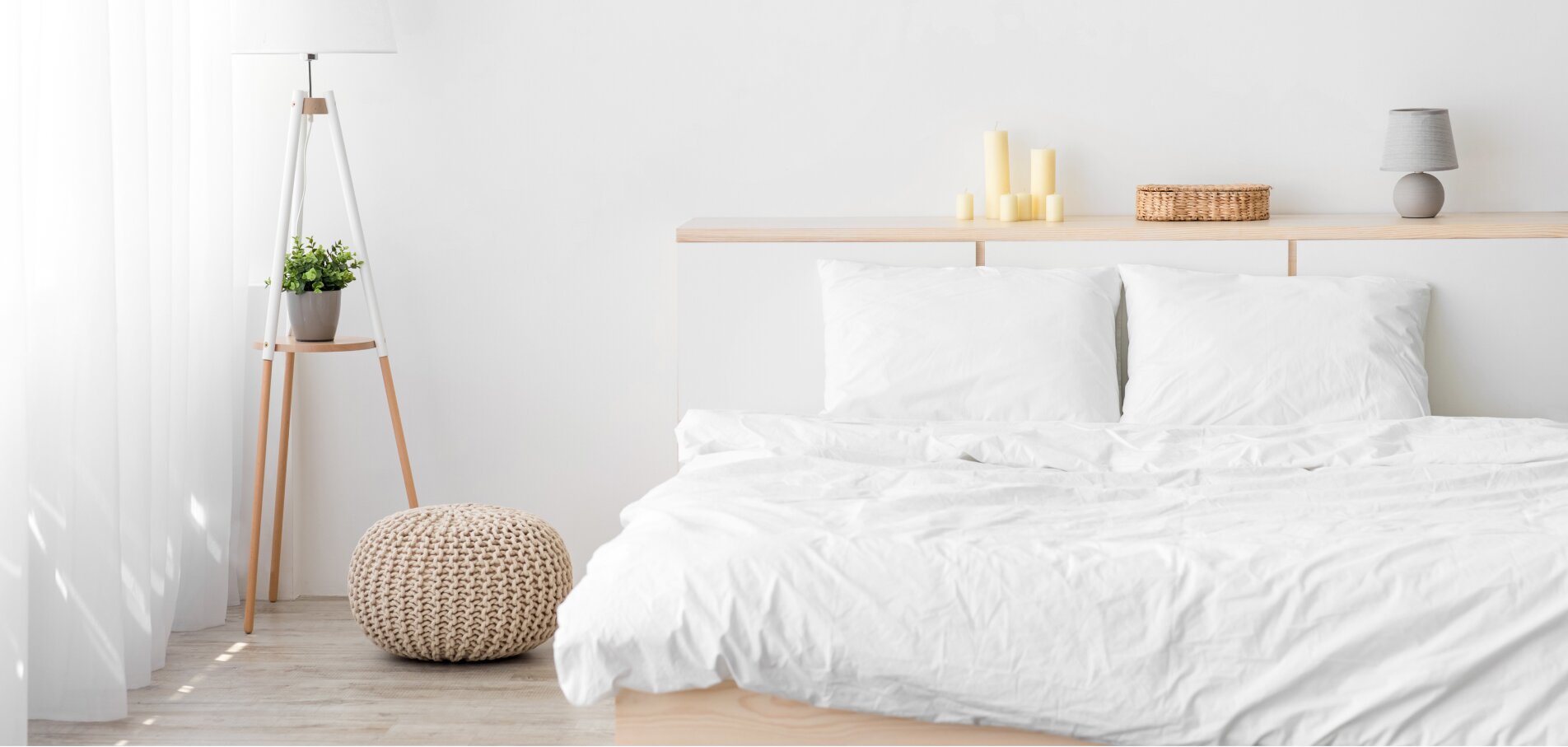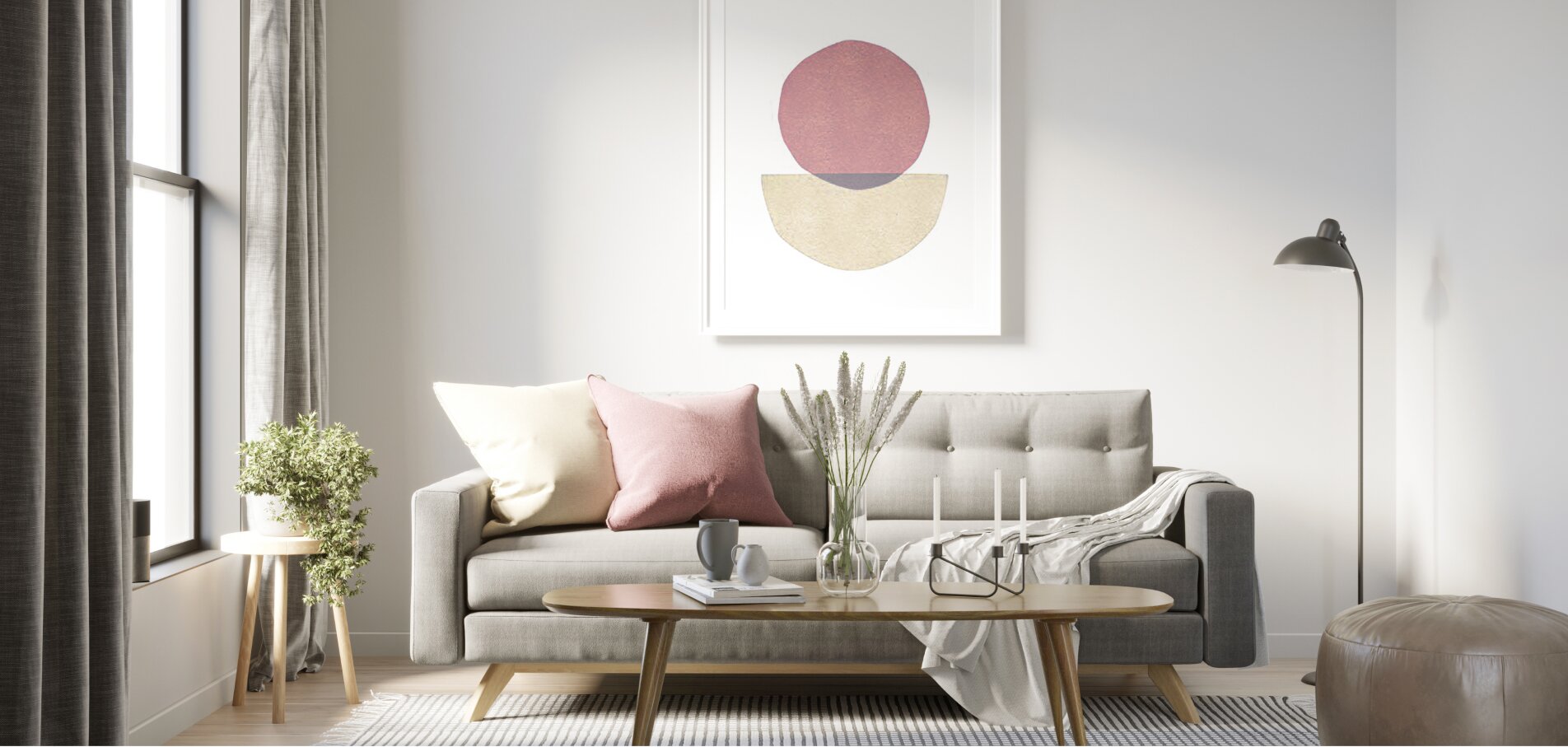You're on the list
By signing up, you agree to receive email marketing.


When it comes to creating a cozy and inviting bedroom, choosing the right bedding can make all the difference. Among the many options available, duvets and comforters are two of the most popular choices. While they may look similar at first glance, there are key differences between a duvet vs. a comforter that will influence your comfort and the style of your bedroom.
A duvet is essentially a soft flat bag filled with down, feathers, wool, or some type of synthetic alternative. It's designed to be used as the top layer of your bedding. Unlike comforters, duvets are often white or off-white and are meant to be used with a duvet cover, which functions like a giant pillowcase.
A comforter is a thick, quilted blanket that's ready to use without any additional covers. It's filled with synthetic fiber, down, or a blend of both, and stitched all over to make sure the filling stays evenly distributed. Comforters come in a variety of colors and patterns, and in that way they double as a decorative element for the bed.
Here are the main differences that set duvets and comforters apart from each other:
Duvets are designed to be used with a cover that’s removable and washable, much like a pillow with a pillowcase. Comforters are one-piece designs that include built-in patterns and colors, providing warmth and style for your bed.
Duvets offer more flexibility because you can easily switch out the covers to reflect seasonal changes, design updates, or fabric preferences. With comforters, what you see is what you get, which means you might need different comforters if you want to vary the look.
Due to their need for covers, duvets can be easier to maintain. You can wash the cover regularly without having to wash the insert as often, which extends the life of the duvet. Comforters require more frequent, large-scale washing since you must clean the entire blanket every time.
Learn moreDuvets often have a higher fill power, making them fluffier and warmer with better insulation capabilities. Comforters tend to have a standard warmth level and are suitable for year-round use in moderate climates but may require additional blankets in colder conditions.
Initially, a duvet can be more of an investment because you purchase both the insert and the cover. But the long-term versatility and the option to update only the cover can make it a more cost-effective choice over time. Comforters might be less expensive upfront, but replacing them for style or wear and tear can add up.
The pros of choosing a duvet include:
The duvet cover acts like a protective layer for the duvet insert, meaning you only need to wash the cover regularly, not the entire duvet.
You can choose from a variety of duvet inserts with different fill materials and weights to find your preferred level of warmth for any season.
The cons of choosing a duvet include:
Buying a duvet and its cover can be more expensive initially compared to buying a comforter.
While changing a duvet cover is straightforward once you get the hang of it, some might find the process of putting a cover on a duvet insert difficult.
Depending on the quality of the duvet cover and insert, the filling can sometimes shift and create uneven spots.
The pros of choosing a comforter include:
Comforters come as a single, pre-assembled piece, eliminating the need for additional accessories like duvet covers.
With a wide range of designs and colors, comforters can serve as a centerpiece in bedroom decor and can eliminate the need for other elements like throw pillows and blankets.
The cons of choosing a comforter include:
The fixed design of comforters means if you have any desire for a decor change, you’ll have to purchase a new piece.
Thanks to their bulk and fill, comforters may not fit in standard home washing machines.
Comforters typically don't offer the same level of adaptability in terms of warmth as duvets, so you might need additional bedding layers during colder months or need to swap for a lighter comforter during warmer months.
Duvets are designed to fit snugly inside a duvet cover and are often slightly larger than the mattress itself to make sure there’s complete coverage and a bit of drape. Comforters are sized to hang amply over the sides of the bed and give a plush look. Put simply, duvets offer a more tailored appearance and comforters provide a more generous fit.
Comforters are typically filled with synthetic fibers like polyester, which is hypoallergenic and easy to care for, or natural fillings like down and feather blends, which are known for their superior warmth and comfort. The outer shell is often made of cotton, polyester, or blends that are durable and soft.
Duvets usually contain a fill of down, feathers, wool, or synthetic alternatives. Each material contributes to different levels of warmth and comfort. The covers are made from a wide variety of fabrics including cotton, linen, and microfiber.
Comforters are ideal if you value convenience and ease of use. They're perfect for anyone who prefers a no-fuss option that's easy to set and forget and doesn't require frequent changes. Comforters work well in guest bedrooms, where the bed setup needs to remain simple yet stylish, or if you appreciate a consistent look and likely won't want to update your bedroom's appearance.
If you want to customize your bedding frequently or if you live in a place where seasonal temperatures vary greatly, a duvet is for you. They're particularly beneficial if you'd like easy-to-clean bedding.
If you want to customize your bedding frequently or if you live in a place where seasonal temperatures vary greatly, a duvet is for you. They're particularly beneficial if you'd like easy-to-clean bedding.
Deciding between a duvet and a comforter ultimately comes down to your personal needs and lifestyle preferences. Consider your specific needs, the climate you live in, and how much time and money you want to spend on bedding maintenance when making your decision.
You're on the list
By signing up, you agree to receive email marketing.